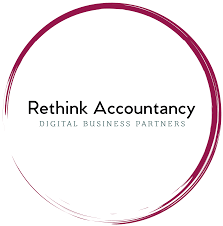May 2023
Professor Atul K. Shah and Mzwanele Ntshwanti asks the question: are you are ready to
rethink accountancy?
We are presently going through a ‘poly-crisis’. Many things are going wrong – and all at the same time. Inequality is growing fast, inflation is back in full swing, we are seeing a rise in global illicit financial flows, the environment is hitting back and we have no technology to stop flooding, hurricanes and forest fires.
And yet many accounting professionals are continuing their old habits, without any change in culture or knowledge that influence business practices and thereby our societies and the environment.
How can this be sustainable?
In 2009, students at Manchester University discovered that the economics they were taught has nothing to do with the real world. We had just been through a global financial crash and this topic was not on any syllabus!
They set up a rebel movement, called Rethinking Economics, which has since gone global and achieved huge media coverage, including on the BBC and in the Financial Times.
Through this movement, different schools of economics across different countries have begun to embrace the ideals of a pluralist and heterodox economics curriculum.
The same group has started a similar new movement called Rethinking Accountancy. The starting point is the same – they want a fairer, more responsible and sustainable society, and education at universities and in professional exams is still quite only traditional and technical.
Ethics is discussed in a secular, hypothetical way, rather than engaging students with their own cultures and beliefs and challenging them on the kind of world they would like to shape. Often technical calculations of accounting, finance and taxation bury the ethical assumptions, removing them from the debate. Professional bodies have had huge ethical scandals among their members with fraud and audit failures and they have responded by changing the exam syllabus, rather than putting responsible Big 4 partners or managers behind bars. In fact, the Big 4 firms have been caught cheating in their ethics exams by sharing the answers among the employees!
When ethics and culture are debated in accounting, the subject can become very interesting and meaningful for young people.
It can help them develop their passion and vision and explore how they can help remove poverty or create jobs, or protect animals and the environment. It can help them challenge the greed and profit maximisation that businesses often practice and propagate with no intention of creating sustainable and just societies. The vast diversity of accounting can also be taught through stories and good case studies from all over the world, not just in America or Europe. If taught well, accountants can become the responsible professionals in finance the world desperately needs.
Join Rethinking Accounting and help us transform the global curriculum.




